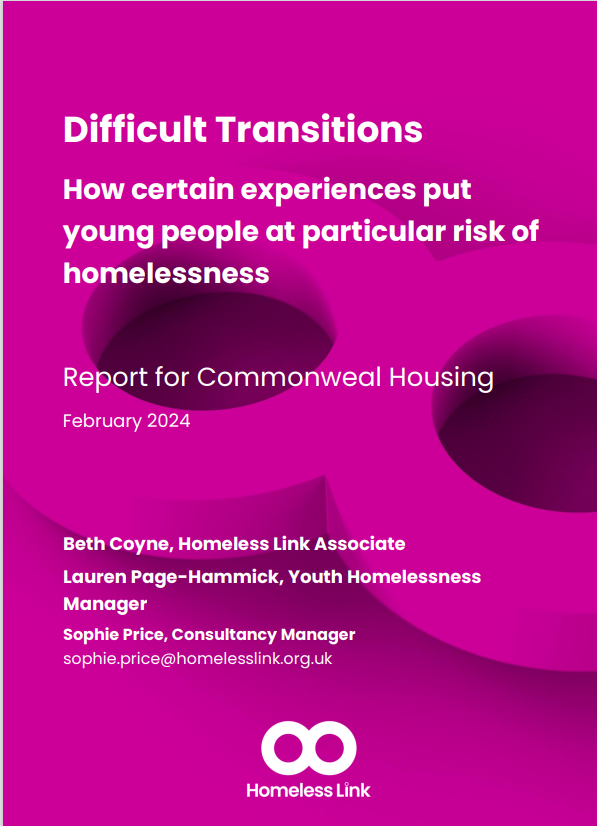
Care, mental health, and school exclusion: drivers of youth homelessness requiring urgent attention, research says
Young people who have had experience of the care system, have mental health problems, or have faced serial school exclusion have an increased risk of homelessness, new research shows.
These three drivers of youth homelessness were highlighted as being of particular concern and requiring additional attention in a report by the national homelessness membership charity Homeless Link and commissioned by Commonweal Housing.
The report identified people’s identities, systemic breakdowns, and transitions as being three overarching drivers of youth homelessness, with intersectionality an additional concern across all three elements.
Protected characteristics are a significant factor in youth homelessness. Roughly a quarter (24 percent) of LGBTQ+ youth have experienced homelessness, according to a survey by charity Akt, while young Black people were over three times more likely to be at risk of or experiencing homelessness compared with young white people.
Mental health problems are both a cause and effect of youth homelessness, with nearly two-thirds (62 percent) of young people experiencing homelessness reporting mental health problems.
There are similar concerns with the links between neurodivergence and homelessness, however, as identified in the report, there is a significant lack of data. Both mental health and neurodiversity form one of the three primary focus areas for Commonweal within its youth homelessness theme. It is inviting the sector to bring new ideas for housing and support models that address injustices facing these groups in its Call for New Ideas programme, launching 27th March 2024.
Young people with experience of the care system is also of primary concern to Commonweal, with those who have been in care disproportionately overrepresented in homelessness and criminal justice statistics. The current levels of homelessness in this cohort mean that nearly one in 10 young people leaving care are homeless in the two years after transition.
There are similar systemic breakdowns that contribute to homelessness in education, where serial school exclusion has played a particular role, and in the asylum system, with 15 percent of 16- and-17-year-olds presenting to their local authority as experiencing homelessness in 2021/22 being unaccompanied asylum-seeking children.
Young people who experience school exclusion significantly underperform in school exams, are more likely to not be in employment, education, or training (NEET) after schooling at age 19, and are more likely to experience mental illness and self-harm. This is the final of the three primary focus areas for Commonweal as part of its Call for New Ideas.
The Call for New Ideas is an original funding mechanism from Commonweal. It invites frontline organisations to bring forward new and imaginative housing and support models that address a specific social injustice, with this iteration focusing on young people over the age of 18 who:
- Had experience of the care system
- Had experience with mental health problems or are neurodivergent
- Had difficult experiences in the education system, particularly those who faced serial exclusion
Commonweal then offers grant funding of £5,000-£10,000 to up to four organisations to test the viability of their model through a feasibility study. If the model proves viable, Commonweal looks to work in partnership with the organisation to develop and deliver a property-based pilot project running up to 10 years.
The Call for New Ideas is due to launch on Wednesday 27 March and closes on Friday 19 April. Details of the Call will be announced on our website on Wednesday 27th. For any questions regarding the Call, please contact apply@commonweal.org.uk
Harry Williams, Policy and Communications Manager at Commonweal Housing, said: “We thank Homeless Link for this illuminating report and bringing these injustices to our attention. It is clear that there are significant pinch points for young people that often overlap and too often are overlooked. Now it is time to address these.
This report has set our hare running, but now we want the sector’s imagination to catch apace. We are calling on frontline organisations to bring us new ideas and new ways of tackling the injustices facing young people. We hope to hear from you soon.”
Tagged:
